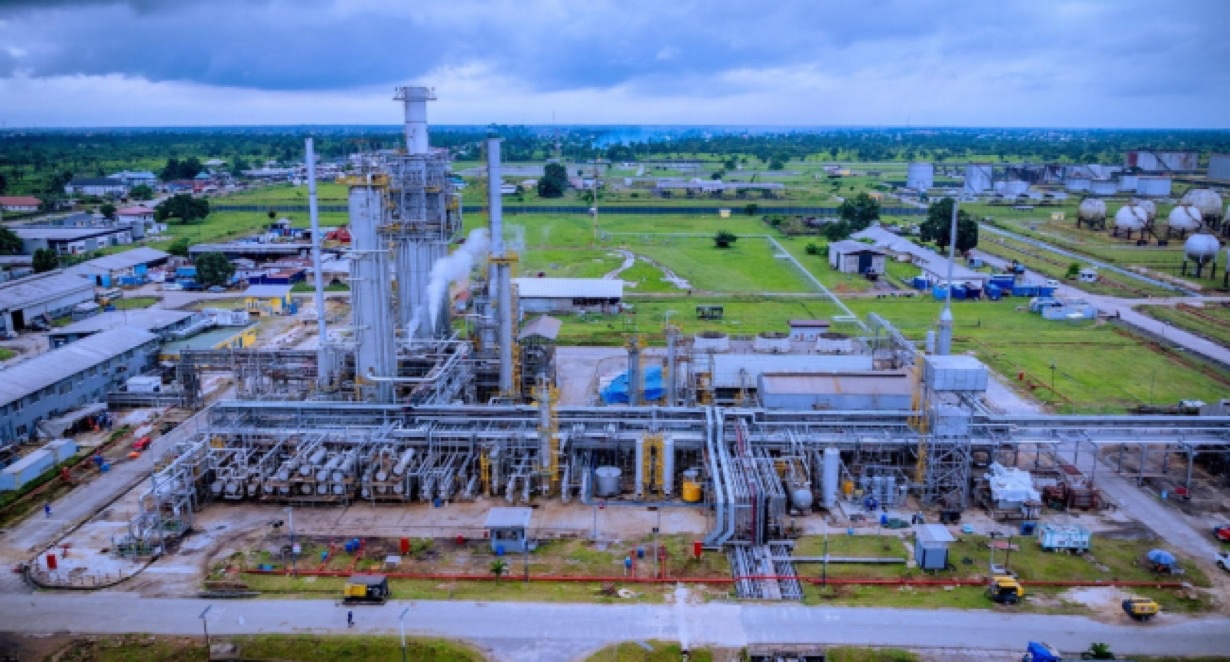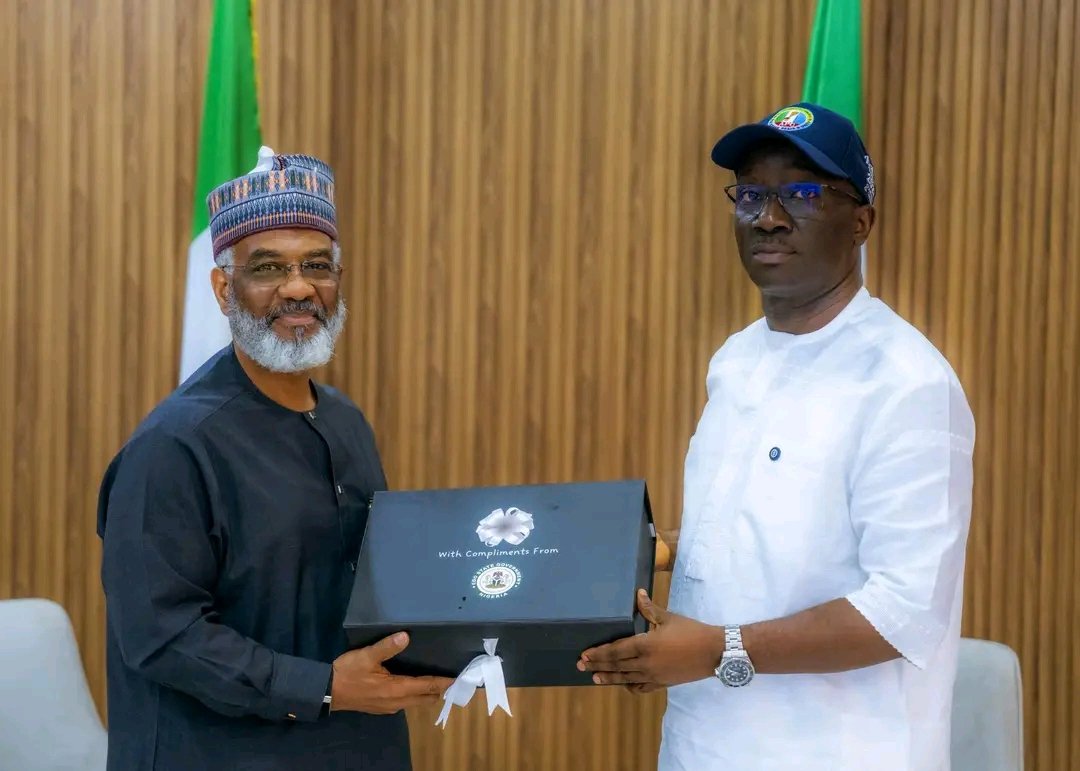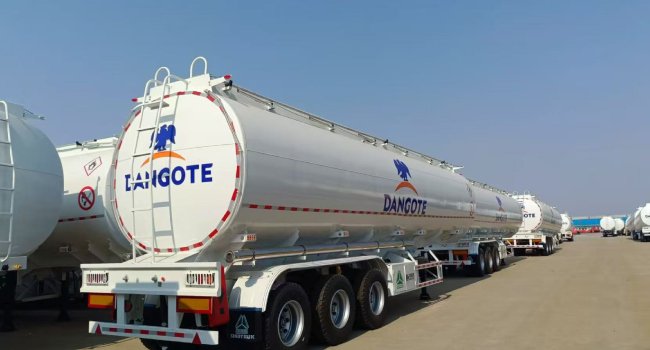Port Harcourt Refinery: NNPC Surmounts 34-year Hurdles, Sustains Products Loading, Experts Hail Kyari, Others

After decades of unfulfilled promises, Nigeria’s Port Harcourt Refinery has finally come back online, offering a glimmer of hope for a nation long ensnared by fuel shortages, reliance on imports, and a debilitating foreign exchange crisis.
With its resumption after more than 30 years of dormancy, the refinery, capable of processing 60,000 barrels per day, could serve as a crucial pillar in the country’s bid to unlock Nigeria’s energy self-sufficiency.
The Port Harcourt Refinery in Eleme, it would be recalled, comprises two facilities: the old refinery, with a 60,000-barrel-per-day capacity, and the new refinery, capable of refining 150,000 barrels per day.
The old refinery, operational since 1965, is Nigeria’s first refinery and had remained idle since 1990 when the newer unit became the primary production hub.
The refinery has a unique configuration where one barrel of crude oil yields a maximum of 23–24% gasoline.
According to Alex Ogedengbe, a former Group Executive Director at NNPCL, the old refinery has a single conversion unit, while the new facility boasts four conversion units, significantly boosting its efficiency.
For over two decades, the Port Harcourt Refinery, once the flagship of Nigeria’s refining sector, lay dormant.
The journey to its revival is littered with missed deadlines and challenges: 2000s to Early 2010s: A series of refurbishment deadlines were set and missed, hampered by inadequate funding, operational inefficiencies, and bureaucratic delays.
2015: The NNPC initiated plans for upgrades but fell short of its timelines due to technical hurdles.
2017: Another ambitious rehabilitation plan was announced, promising significant capacity upgrade. However, delays in securing funding and initiating work stalled progress.
2019: Private-sector partnerships were expected to fund repairs, with promises of resumed operations, but the project failed to meet its targets.
2021: The Federal Government approved $1.5 billion for comprehensive rehabilitation, with NNPC projecting production by mid-2023. The deadline passed with no significant output.
December 2023: NNPC completed the mechanical phase of the refinery’s turnaround maintenance and targeted production by year-end, a goal that also went unmet.
The Political will and Kyari’s Unique leadership
Speaking at a ceremony to mark the resumption of operations, on Tuesday, November 26, 2024, NNPCL’s Group Chief Executive Officer, Mele Kyari, called the achievement “monumental” and a turning point for Nigeria’s energy sector.
The Group CEO, this time, adopted a more cautious approach, refraining from setting specific timelines while working quietly towards operational readiness.
He expressed gratitude to President Bola Ahmed Tinubu for his steadfast support of the rehabilitation project and to NNPCL’s Board and workforce for their dedication.
Femi Soneye, NNPCL’s Chief Corporate Communications Officer, in a statement, described the refinery’s re-streaming as a fulfilment of the company’s commitment to restoring domestic refining capabilities.
According to him, the refinery is currently operating at 90% throughput and it produces straight-run gasoline (Naphtha) blended into 1.4 million litres of PMS daily; 900,000 liters of kerosene; 1.5 million liters of Automotive Gas Oil (Diesel); 2.1 million liters of Low Pour Fuel Oil (LPFO), and additional volumes of Liquefied Petroleum Gas (LPG), also known as cooking gas.
The NNPCL also dismissed claims that the truckout of products from the refinery had stopped because the loading bay had become empty.
In a video interview made available to the press on Monday, the Chief Security Officer of Alesa Kingdom in Rivers State, who works at the refinery loading bay, said, ” Production is one and loading has not stopped. I am one of the loaders from the host community. I loaded four trucks this morning (Monday). We will also be loading tomorrow. This is a very busy period for us. Those peddling fake news are just trying to malign the management.”
Industry experts argued that the successful restart of the refinery owes much to the decisive leadership of President Bola Ahmed Tinubu as well as the foundational role of former President Muhammadu Buhari, who initiated the comprehensive rehabilitation of Nigeria’s refineries during his tenure.
Despite widespread acclaim, scepticism lingers on social media, with some critics alleging that the refinery operates as a blending facility rather than a crude oil processing plant, the experts further hinted that one notable feature of the refinery’s operation is its incorporation of blending components, such as crack C5 from Indorama Petrochemicals (formerly Eleme Petrochemicals), to produce gasoline that meets international specifications.
This practice, according to them, is standard in the global refining industry, based on the intricacies involved in producing fuel that aligns with regulatory standards.
Professor Wumi Iledare, a prominent petroleum economist, described the development as a transformative milestone.
According to Iledare, the refinery’s current capacity of approximately 60,000 barrels per day represents 11.1% of the Nigerian National Petroleum Company Limited’s (NNPCL) domestic refining capacity, offering a critical opportunity to reduce the country’s dependency on imported fuel.
He said, “We must not underestimate a marginal move in a positive direction assuming transparency, accountability, and business ethics are on display.
“Yes, the 60,000 barrels per day NPHR, though marginal at best, within the context of supply availability, accessibility, and perhaps affordability, is a positive thing supplementing the volume expected from Dangote Refinery and others for now.”
James Gooder, Vice President of Crude Oil at Argus Media, speaking during a recent webinar hosted by the Major Energy Marketers Association of Nigeria (MEMAN), noted that combined with the Dangote Refinery’s output, the Port Harcourt Refinery could enhance supply stability and potentially lower fuel prices.
However, Gooder cautioned that drastic price reductions are unlikely without addressing Nigeria’s foreign exchange challenges and fluctuating global crude oil prices.
Light Shedrach, an energy analyst in a recent interview with TVC, called for a broader diversification of Nigeria’s oil and gas downstream sector to foster competition and reduce monopolistic tendencies by some players.
Shedrach said, “The Port Harcourt Refinery demonstrates what is possible when strategic planning meets commitment.
“If Nigeria can rehabilitate the Warri and Kaduna refineries and address lingering inefficiencies, the country could overcome its fuel and energy crises,” he noted.
He therefore highlighted the importance of accelerating the development of modular refineries to complement large-scale facilities like Port Harcourt and Dangote.
Responding to criticism around blending processes at the refinery, which involve incorporating components like crack C5 from Indorama Petrochemicals, he clarified that blending is a standard practice globally to meet product specifications.
Shedrach stressed the need for the media to report with accuracy and avoid sensationalism, which can exacerbate public anxiety.
“We must provide Nigerians with verifiable information,” he said. “This is not the time for divisive rhetoric; it is a time to build trust and transparency.
”He therefore called on the NNPCL to reinvest its recent surplus revenues—reportedly exceeding ₦800 billion—into rehabilitating other refineries and expanding modular refining projects.
According to him, competition among refineries is expected to drive efficiency and potentially lower fuel prices.
He said, “However, for this potential to be realized, stakeholders must focus on achieving full operational capacity and addressing structural challenges in the sector.
Bode Sowomi, a prominent gas consultant and Chairman of the Energy Transition Study Group of the Nigerian Gas Association, during an interview on Channels TV, emphasized that while the refinery’s reactivation might not mark a groundbreaking achievement, it is nonetheless a significant step forward.
He said, “We don’t need to complicate things,” pointing out that multiple governments and the NNPCL had made previous attempts to restart the facility without success.
“The fact that the refinery is now operational, despite past challenges, is a major accomplishment,” Sowomi said, attributing the milestone to the determination and strategic planning that overcame the internal issues, including corruption, which had plagued the refinery for years.
“The jinx has been broken,” he said.
“The Port Harcourt Refinery, now producing petroleum products such as petrol, kerosene, and naphtha, contributes to expanding the country’s refining infrastructure and alleviating the burden of petroleum imports.
“In turn, this will help address Nigeria’s foreign exchange issues by reducing its reliance on imported fuel.”
Sowomi also highlighted the economic benefits for the host community, where the refinery’s operations will spark increased economic activities, including supplies to local vendors, food, and other services.
The expert further addressed the often misunderstood concept of blending, which has become a topic of debate regarding the refinery’s output.
Refining, he explained, is a delicate process rooted in the principles of fractional distillation.
“This is basic chemistry,” he said.”Crude oil is refined through a series of steps where different components are distilled at varying temperatures, each serving a unique purpose.
“Diesel, kerosene, and naphtha are among the key products derived through this process, with each component having a distinct boiling point that allows for their separation,” he said.
“Blending is not a criminal activity but a standard global practice in petroleum refining.”It is simply the process of mixing different crude oil components to produce a product that meets specific specifications,” he clarified.
He explained that blending is an essential step to achieving refined products with consistent quality and performance. “Blending is not a problem, it’s a solution,” he remarked.
According to Sowomi, having more refineries will help eliminate the monopolistic tendencies of foreign oil companies and ensure that the true cost of refined products is reflected in the price at the pump.
However, he cautioned against expecting drastic price reductions.“More refineries won’t immediately lower prices,” Sowomi said, “but they will ensure that the cost of refined products is more transparent and fair to Nigerians.”
Echoing similar sentiments, Ugbegbe, a commentator on TVC News, underscored the significance of the Port Harcourt refinery’s operational success, calling it a long-awaited victory after decades of failure.
“This is a baby step, but it’s a step nonetheless, and it’s important to recognize the progress that has been made.
“The continued operation and expansion of Nigeria’s refining capacity are central to the nation’s energy transition strategy, “Ugbegbe remarked.
As the Nigerian government pushes ahead with its plans to revamp additional refineries, including the Warri and Kaduna facilities, the experts have therefore charged the government and industry stakeholders to remain focused on the long-term vision of energy self-sufficiency.
According to Sowomi, Nigerians should embrace this transition with open eyes and realistic expectations.
“It’s crucial that we, as a nation, understand the basics and continue asking the right questions to ensure that progress is not hindered by misinformation or unrealistic demands,” he added.













